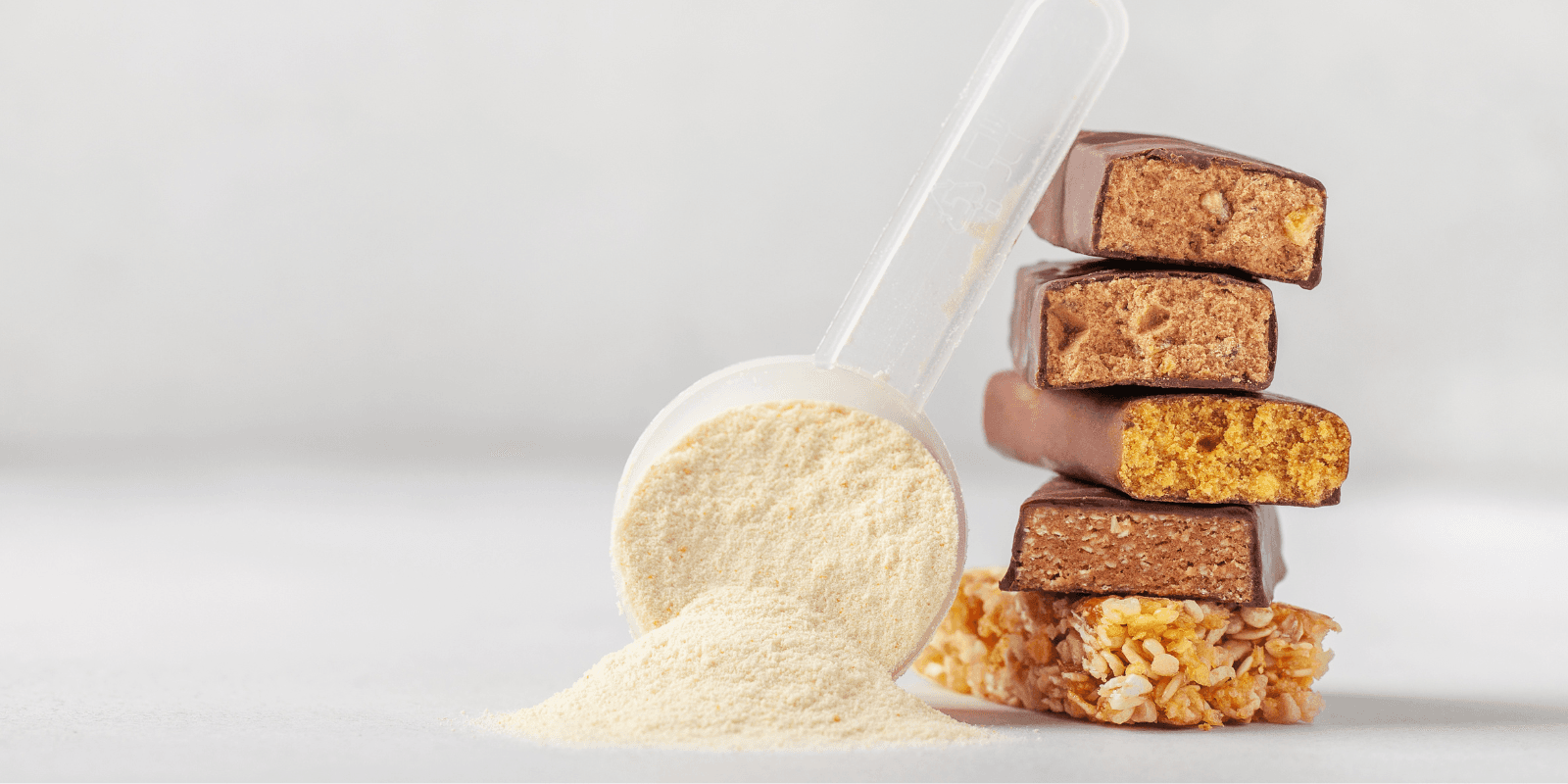2024 Trends: Protein Fortification Fuels Product Innovation

Plant Proteins' Health Halo and Functional Benefits Make Them A Perfect Choice for New Applications
- In 2024, consumers expect food and beverage brands to help them live healthier, happier lives
- Protein-fortified products will grow in popularity, expanding into the active lifestyle market
- Pea proteins offer unique nutritional and functional benefits meeting the needs of consumers and food formulators
The global pandemic had a long-lasting effect on consumer behavior, fueling the growth of the holistic approach to long-term health and wellness. Consumers become more conscious about the food and drinks they choose and how they benefit their health as they focus on their long-term health and nutritional goals. As a result, products formerly reserved for specialized nutrition are moving into the proactive nutrition space.
Plant-Based Protein Innovation Opportunities
After a global pandemic, consumers are adopting a holistic approach to their health, turning to functional products for nutritional support. According to the International Food Information Council's 2024 trends report, plant proteins and protein-fortified foods and beverages will become even more popular this year. The diversification of protein-enriched products is no surprise since "high-protein" was a top-ranked eating pattern (18%) from the IFIC Food and Health Survey in 2023.
Protein fortification is not a new trend. For a long time, protein-based products were a staple of sports nutrition. However, according to the latest food trends, protein fortification is expanding into active and lifestyle nutrition that serves a broader consumer demographic. Protein popularity will create unique opportunities for the brands. While consumers are becoming increasingly comfortable with innovative, functional foods, formulators can experiment with plant protein fortification in various products, including snacks, pasta, protein powders, baking mixes, and rice.
Plant proteins sourced from yellow peas have gained popularity among food innovators and consumers. A&B Ingredients offers a range of pea protein isolates recognized for their various nutritional and functional benefits. Pea protein isolates are an excellent plant protein source for foods and supplements that meet the needs of health-conscious consumers.

Protein Popularity Grows Amid the Rise of Active Lifestyle
Physical activity is recognized as an important element of holistic health. The World Health Organization (WHO) states that exercise significantly benefits the heart, body, and mind. These benefits can extend into helping to reduce non-communicable diseases, prevent mental health issues, and enhance thinking, learning, and judgment skills. With the growing number of consumers considering their long-term health goals, physical activity has become an important lifestyle element. According to the 2022 survey, 42% of consumers were increasing the amount of their physical activity.
The rising importance of leading an active lifestyle and increasing awareness about the health benefits of protein serve as significant factors for the market growth of protein-rich functional foods. For a long time, protein-fortified products were a staple of sports nutrition. Young athletes require protein as they offer various health benefits such as lowering cholesterol, reducing blood pressure, improving immunity, and building muscle. However, the latest trends showed an expansion of the sports nutrition segment to active and lifestyle nutrition that serves a broader consumer demographic, creating unique opportunities for the brands.
Choosing Protein Source
Protein can come from animal or vegetable sources. Animal-based proteins are considered "complete proteins," providing all essential amino acids in sufficient quantities. Athletes typically prefer proteins from animal sources, like whey, casein, and egg. Animal proteins are also usually rich in leucine, which is a key player in stimulating protein synthesis.
However, vegetable proteins are gaining popularity among athletes and health-conscious consumers. The number of people following plant-based and flexitarian diets continues to grow, fueling the need for plant-based and hybrid offerings. Indeed, even if plant proteins are not "complete" compared to animal-based proteins, some of them can provide interesting amounts of amino acids, such as leucine, arginine, or branched-chain amino acids (leucine, isoleucine, and valine) in general.
Moreover, plant proteins can offer other nutritional benefits that are not typical for animal-based proteins. For example, pea proteins do not contain cholesterol. For vegan and vegetarian consumers and athletes, food and beverages fortified with plant-based proteins can provide benefits that meet their nutritional needs.
The quality of protein plays a crucial role in maximizing benefits. Proteins that are easily digested, high in essential amino acids (EAAs), and contain sufficient leucine are most effective in stimulating muscle protein synthesis. For example, pea proteins, boasting essential nutrients and an 86% protein content, emerge as an excellent choice for boosting protein levels in snacks, protein powders, dairy, and non-dairy beverages.

Pea Protein Nutritional Benefits
Pisane® is a pea protein isolate of high purity that contains all the essential amino acids in significant amounts. Thanks to its low anti-nutritional factors content, it is well tolerated. It is also easily digestible and does not contain cholesterol. Thanks to its richness in those amino acids, Pisane® naturally provides high levels of BCAA, leucine, and arginine.
Pea Protein Functional Benefits
Plant proteins from various raw sources have unique taste, texture, and solubility characteristics, which created challenges for food and beverage manufacturers. Due to these challenges, protein fortification has been limited to sports nutrition products, like protein shakes and bars. However, the new generation of plant proteins has addressed these issues, allowing food formulators to incorporate plant proteins into diverse product categories.
A&B Ingredients offers a range of pea protein isolates that are non-GMO, allergen-free, and all-natural ingredients. Pea proteins are excellent emulsifiers and can offer enhanced functional benefits. Notably, Pisane™ pea proteins improve mouthfeel and taste while providing superb emulsification properties in bakery products, like high-protein bars, gluten-free bread, cookies, RTD beverages, powder blends, and non-dairy products. In addition to protein fortification, pea proteins enhance the creamy mouthfeel in ready-to-drink beverages and coffee creamers.
Pea proteins have excellent emulsification properties and can help prevent oil and water separation in plant-based creamers and plant-based butter spreads.
Additionally, Pisane™ pea proteins have unique sensory qualities, allowing for high incorporation of these plant proteins in formulations without compromising taste. The organoleptic qualities of these pea proteins have been optimized through a patented process to address the "green" taste and off-notes. The pea protein isolate is readily soluble and can improve the creaminess of products without adding fat.
Contact us for more information and to help you choose the right pea protein isolates for your formulation needs.
How Can We Help?
We are here to help you with development of new and improved food products. Our technical service and sales teams can assist you in choosing the right ingredients best suited for your applications.
Product CatalogContact Us
